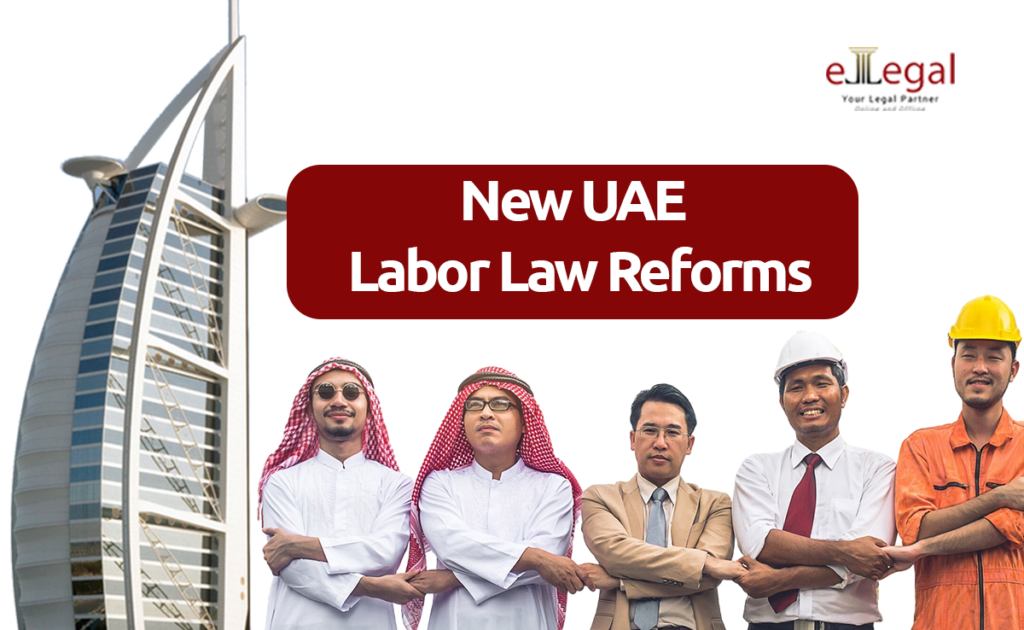The United Arab Emirates (UAE) has introduced sweeping changes to its labor laws in recent years, impacting both employers and employees across the country. These reforms are part of the UAE’s vision to create a more progressive, inclusive, and adaptable workforce.
Recent reforms by the Ministry of Human Resources and Emiratization (MOHRE) have brought significant changes to labor laws in the UAE. These updates have redefined MOHRE’s responsibilities in handling labor disputes, representing a crucial evolution in the country’s approach to resolving such issues. The goal of these changes is to improve efficiency, transparency, and the enforcement of labor rights nationwide.
In this blog, we’ll break down the major aspects of these reforms and help you understand how they might affect you, whether you’re an employer, employee, or job-seeker in the UAE.
Why the New Labor Law Reforms?
The UAE government has long recognized the need for labor laws that match the fast-paced growth of the country. As a global business hub with a highly diverse workforce, the UAE has been eager to set standards that cater to modern workplace needs.
The overarching goals of the new reforms include:
- Greater employee protection and rights.
- Attracting top international talent by aligning labor standards with global best practices.
- Encouraging work-life balance and well-being.
- Enhancing the UAE’s competitiveness as a business destination.
So, what are these reforms, and how do they affect day-to-day work life? Let’s dive in.
Flexible Work Models
One of the standout changes is the shift toward more flexible working arrangements. The new laws permit different types of contracts beyond traditional full-time employment, including:
- Part-Time Work: Employees can work fewer hours than full-time roles and are compensated on a pro-rata basis.
- Temporary Work: For roles that have a specified end date, such as seasonal work or project-based roles.
- Freelance Contracts: This allows skilled workers to offer their services to multiple employers without being tied down by traditional contracts.
Employers now have greater flexibility to hire talent based on project needs or peak times. Meanwhile, workers, especially those with specialized skills, can take on freelance or part-time work, gaining the flexibility to balance multiple projects.
Better Protection Against Unjust Termination
The recent updates to UAE labor laws on termination stress the importance of clear, fair, and respectful termination procedures. Key points include:
- Notice Period: Contracts must specify a notice period of 30 to 90 days, depending on what’s agreed upon. This gives both the company and the employee time to prepare.
- Clear Communication: HR should clearly communicate the reasons and process for termination, ensuring the employee is treated with respect.
- Documenting the Process: Keeping accurate records of all steps, communications, and any agreements made is crucial.
- Compliance and Support: Failing to follow these guidelines could lead to legal consequences. HR should stay updated on laws and provide transition support, such as career counseling, to departing employees.
This adds a layer of job security for employees, who now have recourse if they believe their termination was unjust. Employers must ensure they follow due process when letting employees go, which encourages fair treatment and accountability.
End-of-Service Gratuity
The recent changes in UAE labor laws now calculate end-of-service gratuity based on total working days rather than years of service. Additionally, employees can now receive full gratuity if they resign voluntarily, as long as certain conditions are met. Here’s how HR departments can adjust to these updates:
- Updated Gratuity Formula: HR teams need to understand the new gratuity formula based on working days and apply it consistently.
- Clear Contracts: All employment contracts, new and existing, should specify this calculation method to avoid any confusion.
- Accurate Records: Maintaining precise records of employees’ working days ensures accurate gratuity calculations at the time of resignation or termination.
- Employee Awareness: Informing employees of the updated gratuity calculation and their rights helps keep everyone aligned.
- Policy Updates: Internal policies should be reviewed to reflect these changes, ensuring transparent and fair gratuity payments.
This new provision provides a safety net for employees, allowing them to build a financial buffer at the end of their employment. It also incentivizes long-term employment, benefiting both employees and employers.
Stronger Anti-Discrimination Laws
The new reforms reinforce the UAE’s commitment to equality and non-discrimination. Employers are now legally prohibited from discriminating based on race, gender, nationality, religion, or disability. Additionally, equal pay for equal work is a mandate, especially aimed at bridging the gender pay gap
Statute of Limitations
Employees now have two years to file labor claims from the date they become due. Previously, this period was limited to one year. After two years, the right to file a claim is lost.
Salary Payments During Disputes
If a dispute suspends an employee’s salary, the Ministry may require the employer to continue payments for up to two months. If unresolved within 14 days, the dispute is escalated to the court with a summary and recommendations.
Legally Enforceable Decisions
The MOHRE’s rulings in labor disputes can now be enforced through an “Execution Order,” similar to a court order, making the Ministry’s decisions legally binding.
Right to Appeal
Parties have the right to appeal MOHRE’s decision to the Court of Appeal within 15 working days. The appeal suspends enforcement of the Ministry’s decision, and the Court of Appeal’s ruling is final.
Claim Cap
MOHRE can make binding decisions for claims up to AED 50,000. For larger claims, the Ministry acts as a mediator, and unresolved cases are referred to court.
Conclusion
The UAE labor law reforms represent a significant shift towards a more progressive and equitable work environment. By prioritizing employee rights, work-life balance, and inclusivity, these reforms bring the UAE closer to global best practices, making it an attractive destination for both businesses and talent. As the UAE continues to adapt to the global landscape, these labor reforms are a step forward in creating a future-focused workforce. Whether you’re an employee looking to start your career in the UAE or an employer eager to attract top talent, understanding these reforms will help you navigate the UAE’s dynamic labor market with confidence. For more information on UAE Labour law or in need of Labour related legal services, Contact us.




